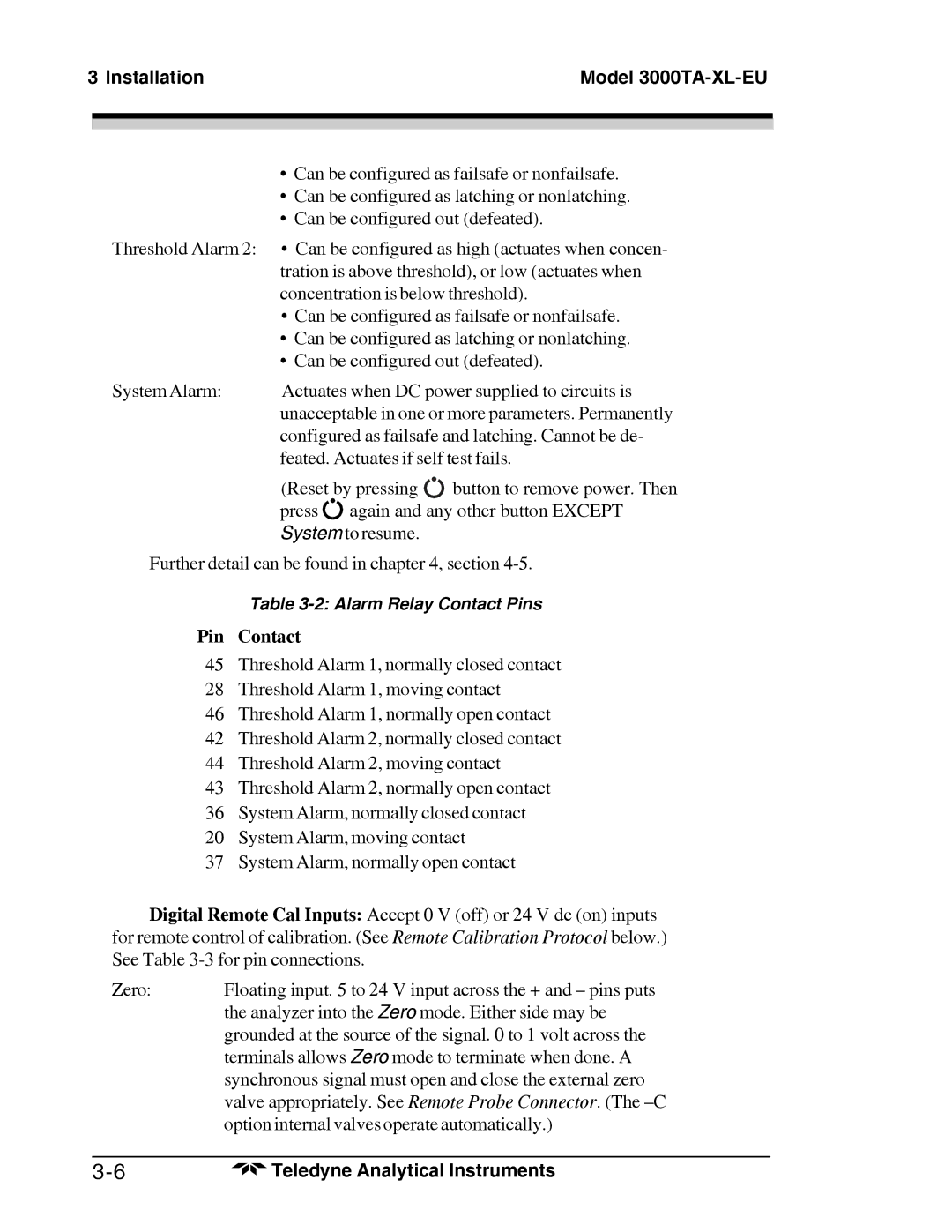
3 Installation | Model | |
|
|
|
|
|
|
|
|
|
•Can be configured as failsafe or nonfailsafe.
•Can be configured as latching or nonlatching.
•Can be configured out (defeated).
Threshold Alarm 2: | • Can be configured as high (actuates when concen- | ||
| tration is above threshold), or low (actuates when | ||
| concentration is below threshold). | ||
| • Can be configured as failsafe or nonfailsafe. | ||
| • Can be configured as latching or nonlatching. | ||
| • Can be configured out (defeated). | ||
System Alarm: | Actuates when DC power supplied to circuits is | ||
| unacceptable in one or more parameters. Permanently | ||
| configured as failsafe and latching. Cannot be de- | ||
| feated. Actuates if self test fails. | ||
| (Reset by pressing | button to remove power. Then | |
| press | again and any other button EXCEPT | |
System to resume.
Further detail can be found in chapter 4, section
Table
Pin Contact
45Threshold Alarm 1, normally closed contact
28Threshold Alarm 1, moving contact
46Threshold Alarm 1, normally open contact
42Threshold Alarm 2, normally closed contact
44Threshold Alarm 2, moving contact
43Threshold Alarm 2, normally open contact
36System Alarm, normally closed contact
20System Alarm, moving contact
37System Alarm, normally open contact
Digital Remote Cal Inputs: Accept 0 V (off) or 24 V dc (on) inputs for remote control of calibration. (See Remote Calibration Protocol below.) See Table
Zero: | Floating input. 5 to 24 V input across the + and – pins puts |
| the analyzer into the Zero mode. Either side may be |
| grounded at the source of the signal. 0 to 1 volt across the |
| terminals allows Zero mode to terminate when done. A |
| synchronous signal must open and close the external zero |
| valve appropriately. See Remote Probe Connector. (The |
| option internal valves operate automatically.) |
|
|
Teledyne Analytical Instruments |
